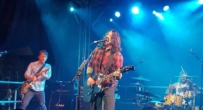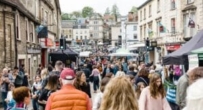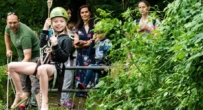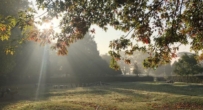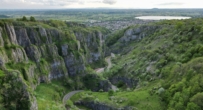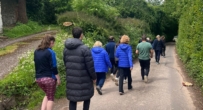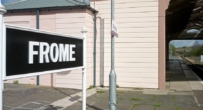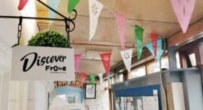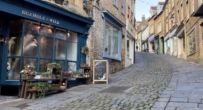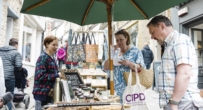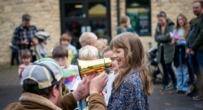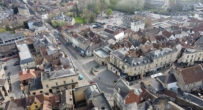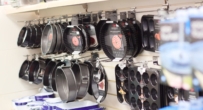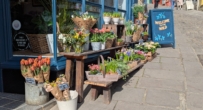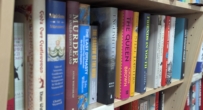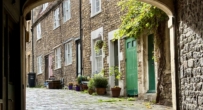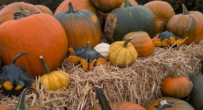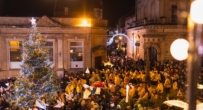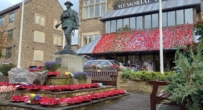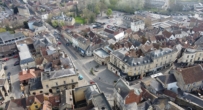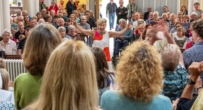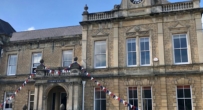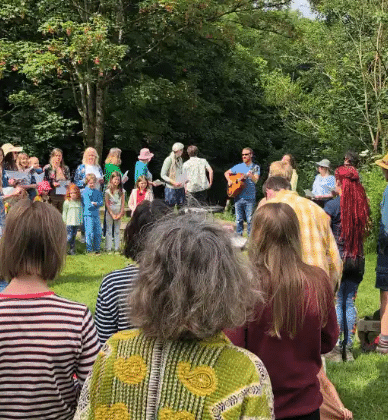Guest writer Owen King writes for his blog, EVAL Projects, as well as being a researcher with a doctorate in public engagement and environmental governance. Owen is passionate about community engagement, environment and climate action, nature connection, health and resource governance.
Water binds our health to the health of the planet. So, why have our rivers been forgotten? In Frome, the community is reconnecting to its vital waterway.
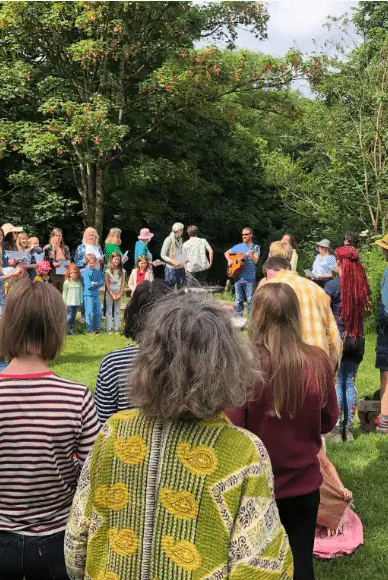 You never step in the same river twice, the Greek philosopher Heraclitus once wrote, because it is not the same river, and you are not the same person. And, perhaps we might add, in any case, the river is us and we are the river.
You never step in the same river twice, the Greek philosopher Heraclitus once wrote, because it is not the same river, and you are not the same person. And, perhaps we might add, in any case, the river is us and we are the river.
This is the lyric penned by participants in a new project that is reconnecting the community of Frome in Somerset to the town’s river. The River Vision project is raising awareness and support for efforts to reduce pollution and protect biodiversity, recognising the importance of rivers to health and wellbeing.
Forgotten river
Flowing from the foot of the Mendip Hills to join the River Avon near Bath, the River Frome (whose name means fair or brisk, referring to its flow) was key to the establishment of the town. Situated in rural east Somerset, Frome subsequently became a market town and industrial centre for wool and cloth.
But like many rivers, the Frome, its banks and floodplains, have been extensively modified, developed and managed over the ensuing decades. As a result, the river today is often hidden from view, inaccessible and, therefore, forgotten.
More recently, however, the river has been making itself known to the residents of the town. As our changing climate has made winters wetter, intense downpours have caused the more frequent flooding, causing damage and disruption to property and infrastructure, overwhelming flood prevention measures.
Climate change
Increased operation of combined storm overflows also means raw sewage entering our rivers with alarming frequency. At the same time, mismanagement of water and chemicals on farmland, and the growing problem of pollutants and waste from other sources such as roads and households, continue to have an adverse effect on river water quality and biodiversity.
Such problems are not exclusive to Frome. Nationally, rivers have become unappealing prospects for anyone invited to explore, paddle their toes or even take a dip. Yet there is some irony that even as there has been a deterioration in the quality of our waterways, there has also been a huge growth in the popularity of wild/open water swimming and the therapeutic effects of cold water immersion. Intuitively, we all know that being near or in water makes us feel better. So, why don’t we value our rivers more?
Taking action
This is one question that has occupied Gemma and Lizzie, two parents from Frome who lead the Frome Families for the Future River Vision Project. Supported through Future Shed’s residency programme, the project aims to encourage sustainable practices among upstream polluters in the Frome catchment. The approach is to raise awareness, support learning and foster respect for the river among the Frome community.
The initial focus of the project is on enhancing the accessibility and appeal of one section of the river. The plan features an accessible path leading to the river, where a platform made from natural materials will be built into the riverbank, providing a perfect spot to enjoy nature. To prevent further erosion from ‘dog slides,’ steps down to the river might also be included. The final design is still in the works. Meanwhile, a series of community events centering on biodiversity, recreation, and river health is underway, including a River Festival with children’s activities, performances art and a talk by local television presenter and biologist Jeremy Wade.
Community engagement
Community consultation consisted of surveys and in-person engagement, with a focus on gathering ‘dreams’ for time spent at the river. Working with Neighbourhood Toolbox, the engagement process informed the development of a community brief for the river access point. These outputs were supported by a creative range of media, including illustrations, maps, posters and artworks, through which the community could discuss and learn.
The River Vision project also connected with a network of key stakeholders, including Friends of the River Frome, Wessex Water, the Environment Agency, Bristol Avon Rivers trust (BART), Wild Trout Trust, and Frome and District Angling Association, enabling access to knowledge and support that is helping to progress the project. In the process, they are building relationships through which strongly-guarded institutional and scientific boundaries between society and nature are challenged. As mutual understanding and respect have been built, official stakeholders have been more open and responsive to requests for help.
For Gemma, however, Ripple Effect’s song was the most meaningful and emotional part of the River Vision project. They recruited a facilitator, Heather Truesdall, to run a series of workshops in which the lyrics and melody were co-created by parents, children and others. The song-writing process was informed by activities such as silent walks along the river and group reflection.
I am the river, listen to me
The finished song includes lyrics created both by children and residents of the local care home where some of the workshops took place. The choir performed the song at the recent Frome International Climate Film Festival, and again at a River Festival organised on the banks of the Frome, which was attended by more than 400 people.
At five years old, it was one of the youngest members of Ripple Effect who came up with the lyric “I am the river, listen to me, please can I be free”, capturing the silent river walk, the act of listening and giving voice to nature. In this way, through a collective experience of sensing, reflecting and creating, this cross-generational group were able to express something profound. The song became a rejection of the separation between human and non-human worlds, which has enabled our exploitation of ‘nature’ and led us to the current climate crisis. It is an act of recognising interconnectedness and seeing water as the element that binds our health to the health of the planet.
To learn how you can make a difference and help the river go to www.fromefamiliesforthefuture.co.uk/rivervision or email fromefamiliesforthefuture@gmail.com to speak to the team!
